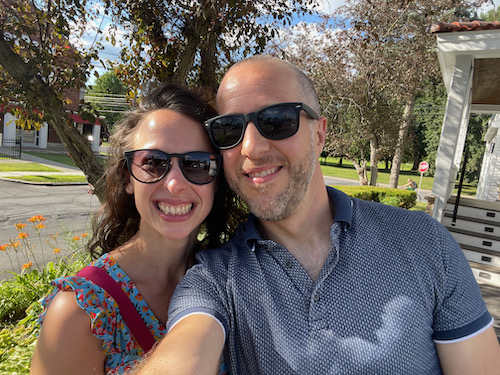A mindfulness-for-anxiety perspective shift in modern life
I’ve never done this before.
Not just this writing. I mean this moment in time.
And if I’ve never done this moment before, then (I imagine) neither have you. In fact, no one has. As far as I can tell.
At the time of this writing, the oldest person alive was less than 117 years old. In the U.S., those over 100 account for about .03% of the population (though this number is on the rise). Globally, those over 100 account for about .01% (though this number is on the rise, also). Even with more centenarians alive today, that’s not a lot of people.
In short, most of us haven’t been here that long. And those that have represent a small number of people.
Why this matters: Even in the face of complex systems, incomprehensible power, and mind-boggling, data-mining technologies, right now is still new. For everyone. And while the world is old (here are a few fun facts from NASA) and some of our practices are ancient, the newness of now gives those of us living room to consider: maybe there’s something else we can do.
In short, we’re all just people.
Something about this makes me hopeful. But then again, I’m a stranger here, too.
What might you do with now if it is – in fact – new?
A book that led me to my wife: On Writing Well: The Classic Guide to Writing Nonfiction by William Zinsser
Without On Writing Well, I doubt I’d be married. How can a book on writing do such a thing? Shortly after meeting my (now) wife, she moved from northern California to upstate New York. At the time, I was 29, broke, living with my parents, and jobless — what some might call a “real catch.” Her move, nonetheless, presented me with a question: do I stay or do I follow?
Zinsser’s advice: embrace the opportunity and take action. I took this advice and never looked back.
Sure, On Writing Well will give you lessons on how to write with clarity, confidence, and impact. But it also might send you on the adventure of your lifetime.
A resource that I use to produce this newsletter: the decomposition notebook
Naturally, writing well starts with, well, writing. And for me, I like a classic composition notebook. In college, I loved moleskins but I couldn’t afford them. When I finally bought one, I never used it. I just couldn’t bring myself to mess the leather binding and fine paper with chicken-scratch.
Today, my go-to is the decomposition notebook. It’s like a composition notebook but with a twist. Yes, it’s inexpensive. Yes, it’s marketed as better for the environment with 100% post-consumer recycled paper. But most of all, the covers are uniquely illustrated. The result is both simple and beautiful.
So what’s your notebook of choice? Let me know, and I’ll add them to an upcoming issue of the newsletter.
More posts on mindfulness for anxiety
- Why I replaced my morning meditation for anxiety with this one breathing technique…
- Dream interpretation – why I record, consider, and analyze my dreams
- Peanut Butter Manifesto: binge eating my way to better consciousness

